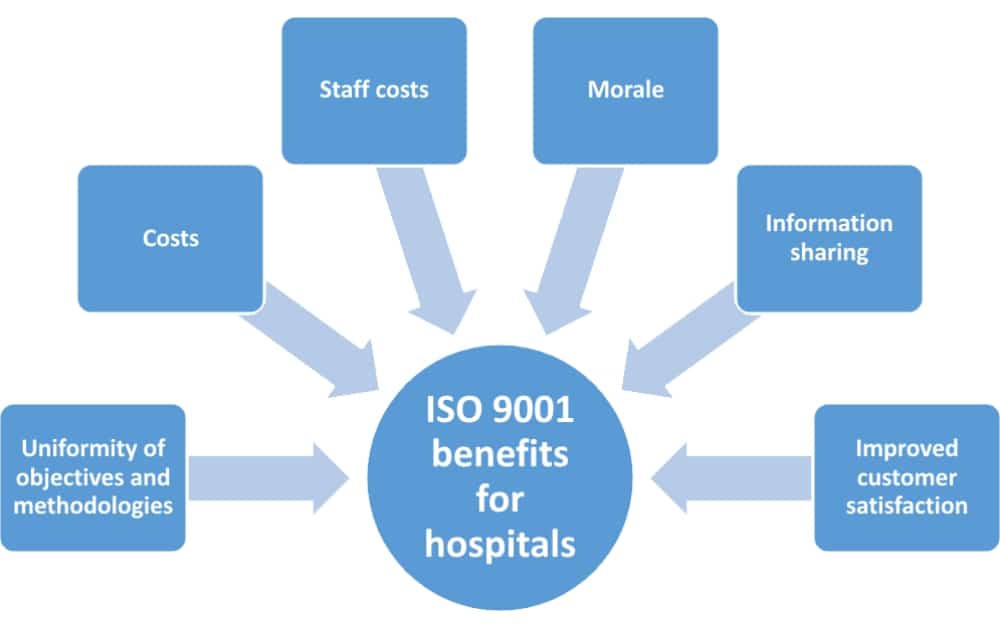ISO Certification for Quality of Healthcare Services

ISO does not have a specific certification standard for the quality of healthcare services. However, there are ISO standards and guidelines that healthcare organizations can use to improve the quality, safety, and efficiency of their services. Here are some ISO standards relevant to healthcare quality:
ISO 9001 - Quality Management: ISO 9001 provides requirements for a quality management system (QMS) that can be applied to organizations in various industries, including healthcare. Implementing ISO 9001 principles can help healthcare organizations enhance patient satisfaction, improve processes, and achieve better outcomes.
ISO 15189 - Medical Laboratories: ISO 15189 provides requirements for the competence, impartiality, and consistency of medical laboratories. It covers areas such as quality management, personnel competence, equipment, quality control, and laboratory information management. ISO 15189 certification demonstrates that a medical laboratory meets international standards for quality and competence.
ISO/TS 13131 - Patient Safety: ISO/TS 13131 provides guidelines for improving patient safety in healthcare organizations. It covers areas such as risk management, incident reporting, medication safety, infection control, and patient involvement. While ISO/TS 13131 is not a certification standard, healthcare organizations can use its guidelines to enhance patient safety practices.
ISO 31000 - Risk Management: ISO 31000 provides principles and guidelines for risk management in organizations, including healthcare providers. Implementing ISO 31000 can help healthcare organizations identify, assess, and manage risks that may affect patient safety, quality of care, and organizational performance.
ISO 26000 - Social Responsibility: ISO 26000 provides guidance on social responsibility, including principles and practices related to healthcare organizations' interactions with patients, communities, and other stakeholders. Implementing ISO 26000 principles can help healthcare organizations demonstrate ethical behavior, transparency, and accountability in their operations.
ISO 10002 - Customer Satisfaction: ISO 10002 provides guidelines for handling complaints in organizations, including healthcare providers. Implementing ISO 10002 can help healthcare organizations establish effective complaint-handling processes, resolve patient grievances promptly, and improve patient satisfaction.
While ISO does not offer specific certification for the quality of healthcare services, healthcare organizations can use these ISO standards and guidelines as frameworks to enhance various aspects of their operations, including quality management, patient safety, risk management, social responsibility, and customer satisfaction. Certification to ISO standards such as ISO 9001 and ISO 15189 can demonstrate an organization's commitment to quality and competence in healthcare delivery. Additionally, compliance with ISO guidelines such as ISO/TS 13131, ISO 31000, ISO 26000, and ISO 10002 can help healthcare organizations improve patient safety, risk management practices, social responsibility initiatives, and patient satisfaction.
Thank you,